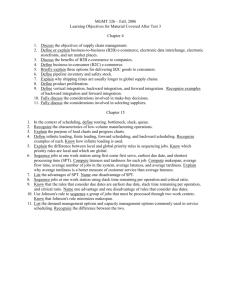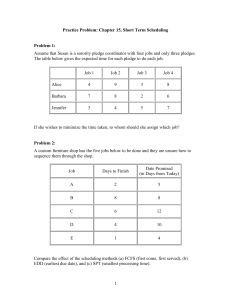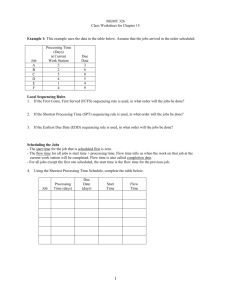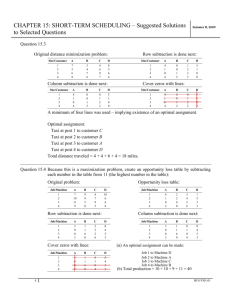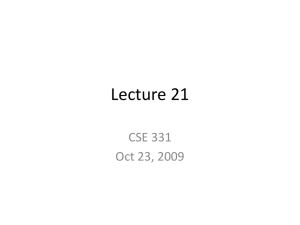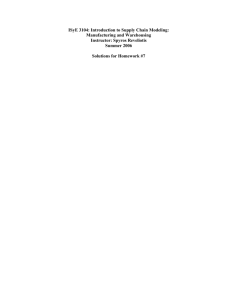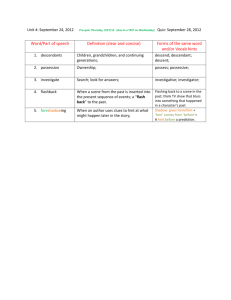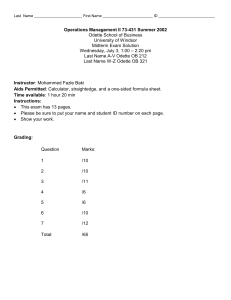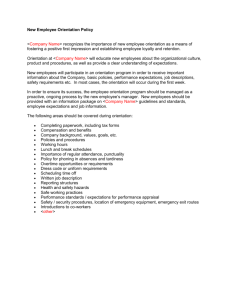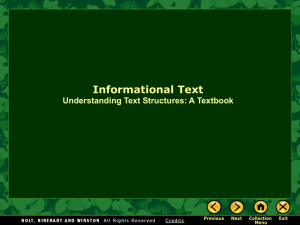ISyE 6201: Manufacturing Systems
advertisement
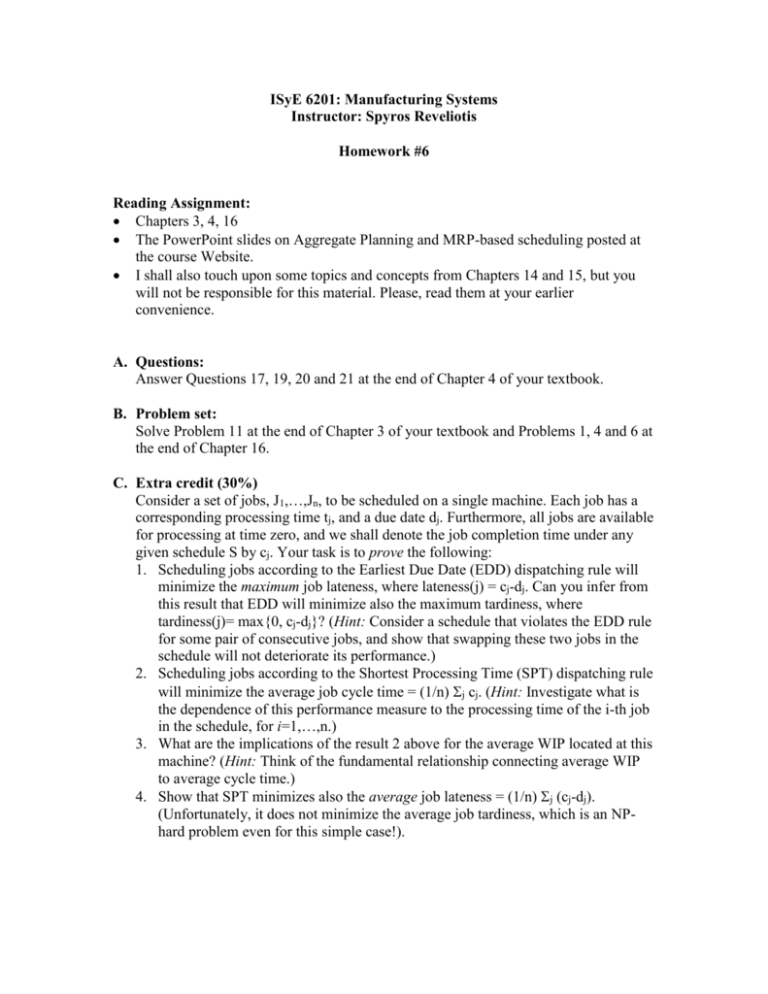
ISyE 6201: Manufacturing Systems
Instructor: Spyros Reveliotis
Homework #6
Reading Assignment:
Chapters 3, 4, 16
The PowerPoint slides on Aggregate Planning and MRP-based scheduling posted at
the course Website.
I shall also touch upon some topics and concepts from Chapters 14 and 15, but you
will not be responsible for this material. Please, read them at your earlier
convenience.
A. Questions:
Answer Questions 17, 19, 20 and 21 at the end of Chapter 4 of your textbook.
B. Problem set:
Solve Problem 11 at the end of Chapter 3 of your textbook and Problems 1, 4 and 6 at
the end of Chapter 16.
C. Extra credit (30%)
Consider a set of jobs, J1,…,Jn, to be scheduled on a single machine. Each job has a
corresponding processing time tj, and a due date dj. Furthermore, all jobs are available
for processing at time zero, and we shall denote the job completion time under any
given schedule S by cj. Your task is to prove the following:
1. Scheduling jobs according to the Earliest Due Date (EDD) dispatching rule will
minimize the maximum job lateness, where lateness(j) = cj-dj. Can you infer from
this result that EDD will minimize also the maximum tardiness, where
tardiness(j)= max{0, cj-dj}? (Hint: Consider a schedule that violates the EDD rule
for some pair of consecutive jobs, and show that swapping these two jobs in the
schedule will not deteriorate its performance.)
2. Scheduling jobs according to the Shortest Processing Time (SPT) dispatching rule
will minimize the average job cycle time = (1/n) j cj. (Hint: Investigate what is
the dependence of this performance measure to the processing time of the i-th job
in the schedule, for i=1,…,n.)
3. What are the implications of the result 2 above for the average WIP located at this
machine? (Hint: Think of the fundamental relationship connecting average WIP
to average cycle time.)
4. Show that SPT minimizes also the average job lateness = (1/n) j (cj-dj).
(Unfortunately, it does not minimize the average job tardiness, which is an NPhard problem even for this simple case!).
Finally, in your study and your work on the homework, please, remember to consult the
document with the errata regarding your textbook, that can be found at:
http://www.factoryphysics.net/factoryphysics/Documents/Errata_for_Second_Edition.pdf

